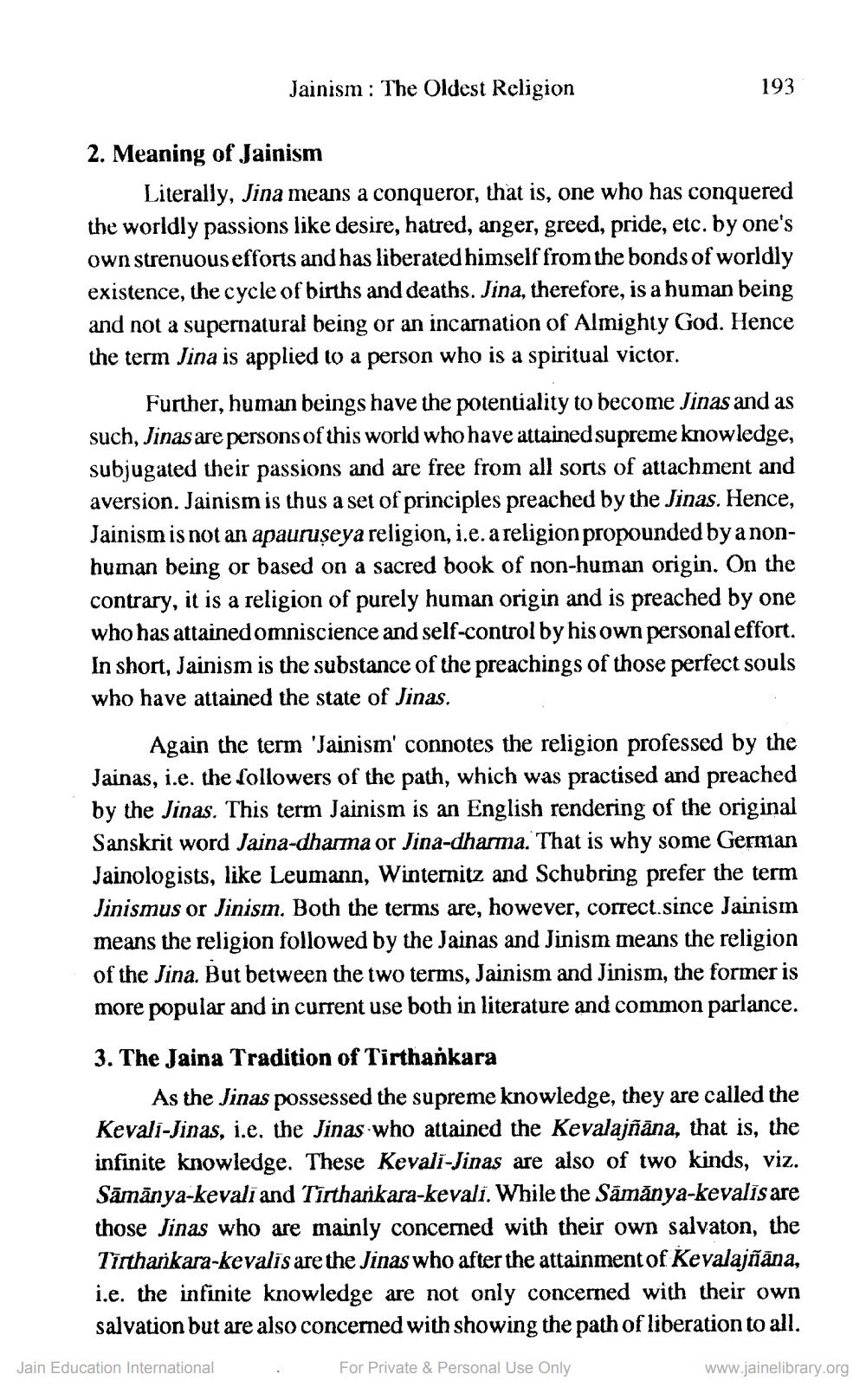________________
Jainism: The Oldest Religion
193
2. Meaning of Jainism
Literally, Jina means a conqueror, that is, one who has conquered the worldly passions like desire, hatred, anger, greed, pride, etc. by one's own strenuous efforts and has liberated himself from the bonds of worldly existence, the cycle of births and deaths. Jina, therefore, is a human being and not a supernatural being or an incarnation of Almighty God. Hence the term Jina is applied to a person who is a spiritual victor.
Further, human beings have the potentiality to become Jinas and as such, Jinas are persons of this world who have attained supreme knowledge, subjugated their passions and are free from all sorts of attachment and aversion. Jainism is thus a set of principles preached by the Jinas. Hence, Jainism is not an apauruseya religion, i.e. a religion propounded by a nonhuman being or based on a sacred book of non-human origin. On the contrary, it is a religion of purely human origin and is preached by one who has attained omniscience and self-control by his own personal effort. In short, Jainism is the substance of the preachings of those perfect souls who have attained the state of Jinas.
Again the term 'Jainism' connotes the religion professed by the Jainas, i.e. the followers of the path, which was practised and preached by the Jinas. This term Jainism is an English rendering of the original Sanskrit word Jaina-dharma or Jina-dharma. That is why some German Jainologists, like Leumann, Winternitz and Schubring prefer the term Jinismus or Jinism. Both the terms are, however, correct.since Jainism means the religion followed by the Jainas and Jinism means the religion of the Jina. But between the two terms, Jainism and Jinism, the former is more popular and in current use both in literature and common parlance. 3. The Jaina Tradition of Tirthankara
Jain Education International
As the Jinas possessed the supreme knowledge, they are called the Kevali-Jinas, i.e. the Jinas who attained the Kevalajñāna, that is, the infinite knowledge. These Kevali-Jinas are also of two kinds, viz. Sāmānya-kevali and Tirthankara-kevali. While the Samanya-kevalis are those Jinas who are mainly concerned with their own salvaton, the Tirthankara-kevalis are the Jinas who after the attainment of Kevalajñāna, i.e. the infinite knowledge are not only concerned with their own salvation but are also concerned with showing the path of liberation to all. For Private & Personal Use Only
www.jainelibrary.org




